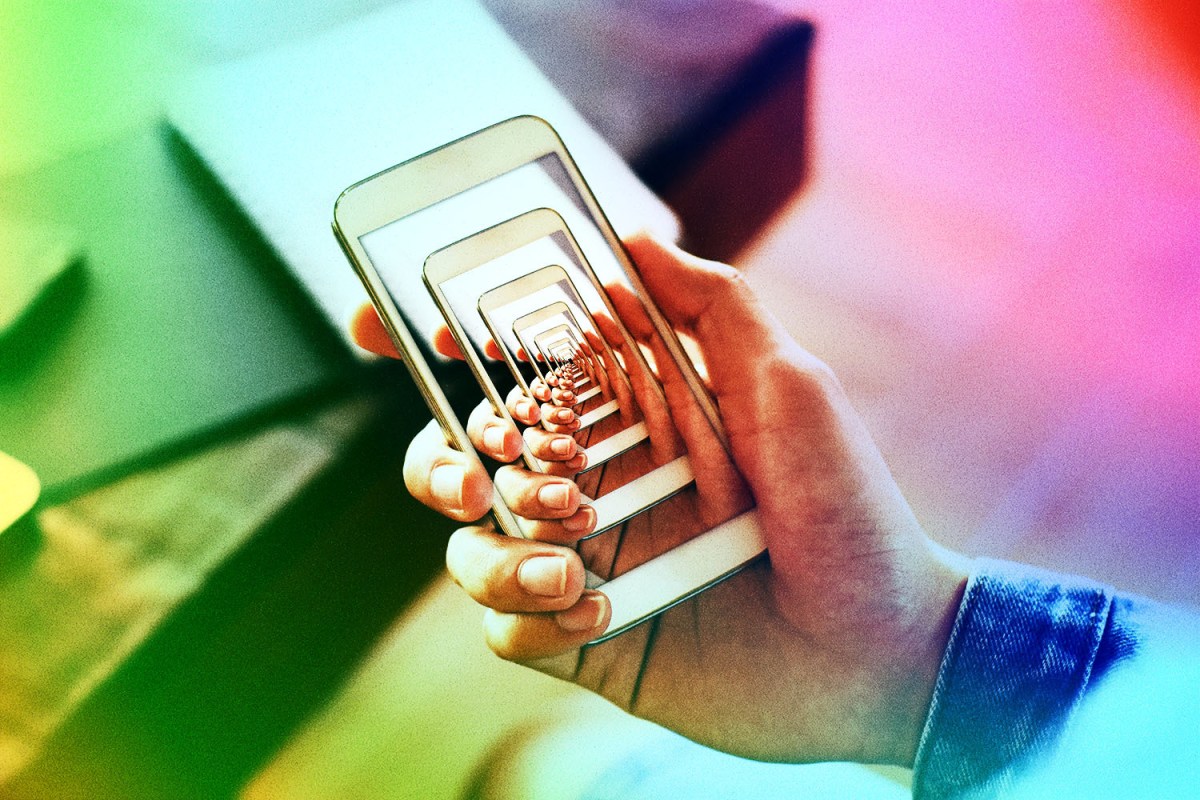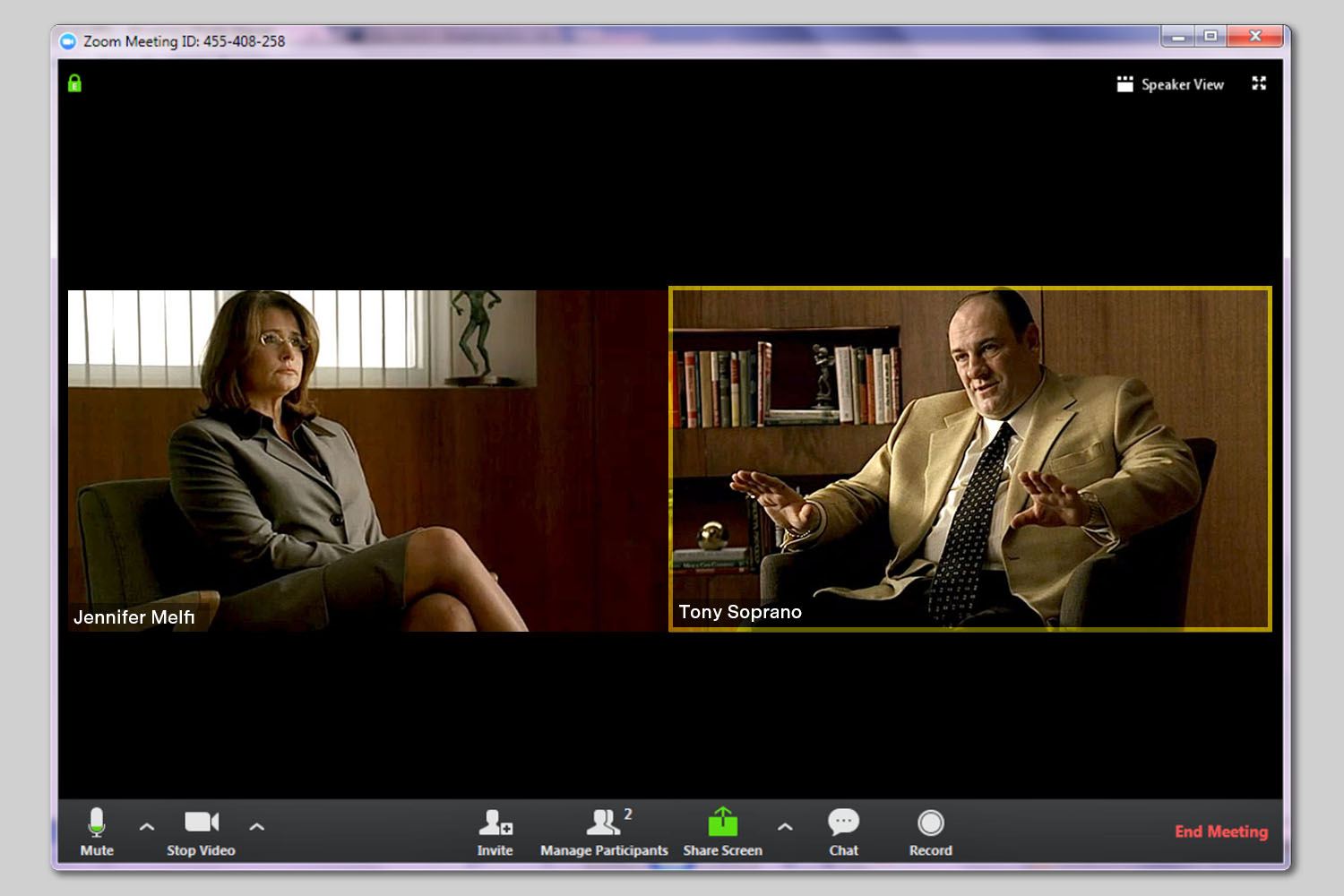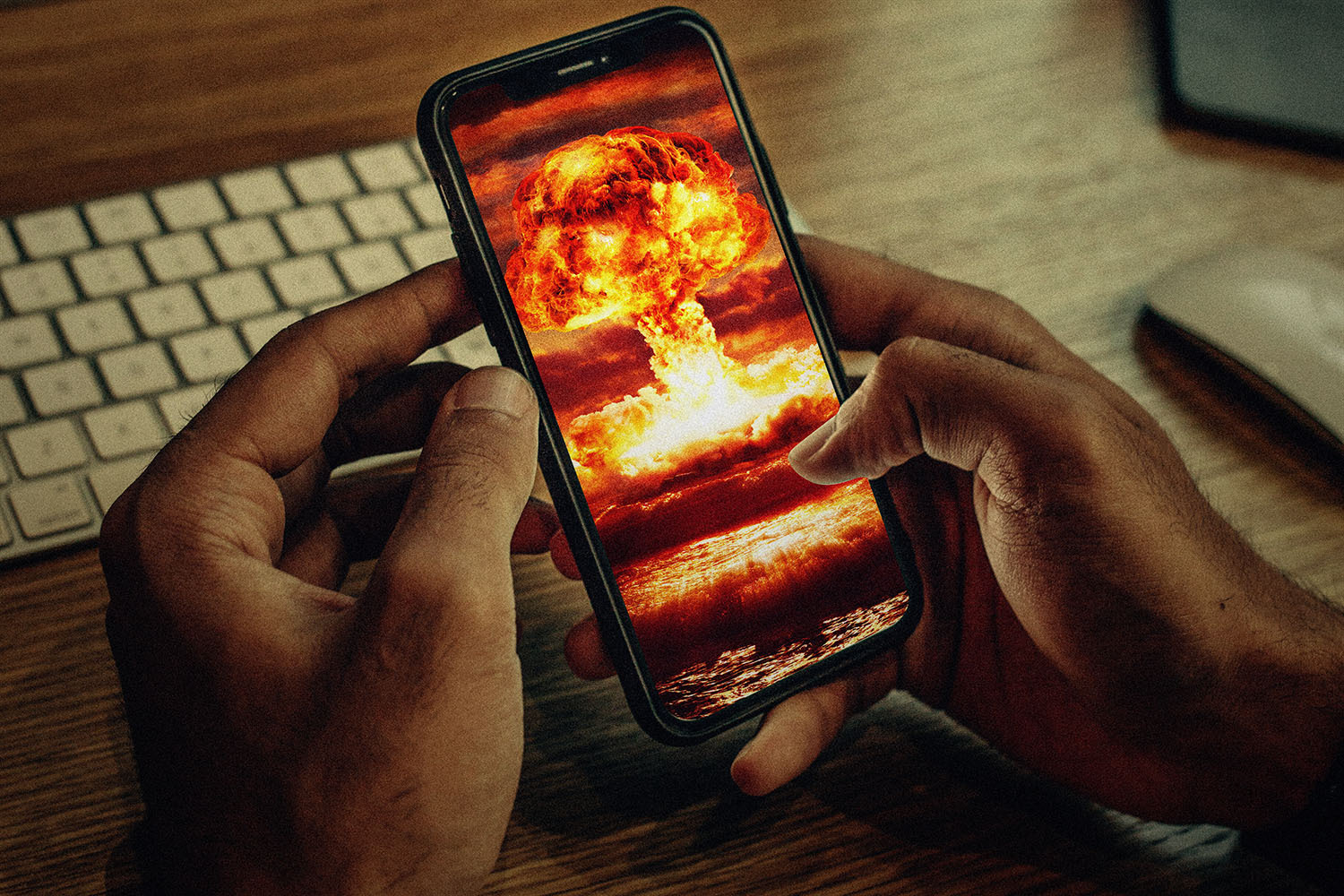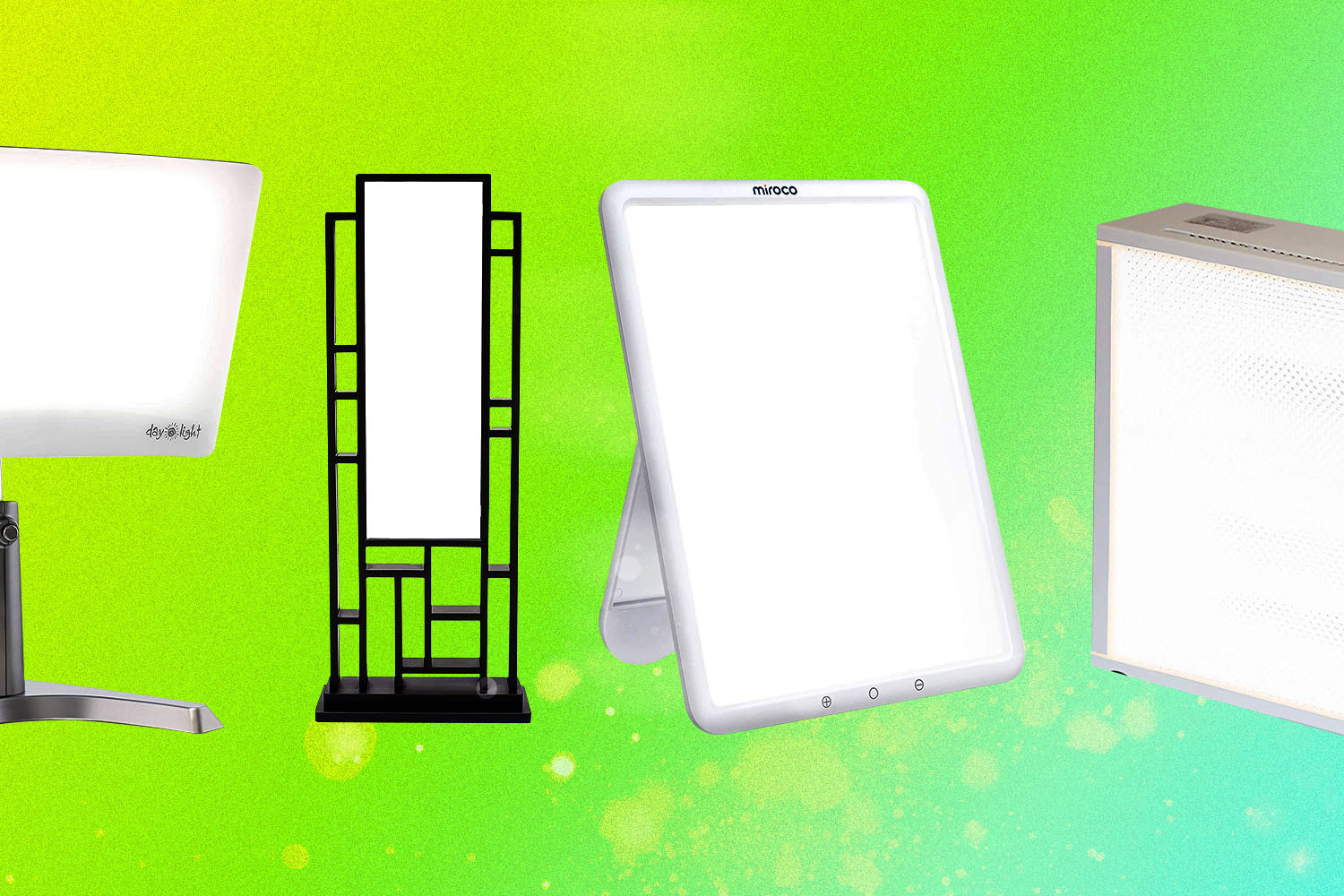Every year, winter brings numerous challenges to our bodies. We wake up with sore throats simply because our heaters are blasting. Our skin is dry, red and unbearably itchy. The cold air brings on annoying runny and stuffy noses. You’ll probably catch a head cold or even the flu.
But this winter is obviously different. We’re still dealing with a novel virus that’s continuing to reach record infection and death rates. ICUs across the country are nearing or at full capacity. And our anxieties about the untamed virus and now a recent coup attempt are certainly not helping us feel any better.
Many of us have been on high alert about our health since March. Waking up with a slight sore throat or headache might have thrown you into a COVID spiral that had you reaching for a thermometer. But now, as we reach the depths of winter, distinguishing between the normal physiological ravages of cold weather and the broad spectrum of COVID-19 symptoms can seem impossible, and for those struggling with anxiety over their health, a nightmare.
Moreover, those who have recovered from COVID-19 (myself included) are experiencing long-term symptoms or worried about the unknown effects the virus could have on their bodies in the future.
There are tons of online communities, like Reddit’s r/COVID-19Positive and r/covidlonghaulers, where people who have tested positive, are worried about testing positive or are experiencing long-term symptoms share their experiences, fears and struggles with the virus, often asking other members how they’re dealing with particular symptoms and how long they last. One question that’s asked a lot in these subreddits is how others are dealing with their anxiety throughout the ordeal, since it’s often difficult to decipher between what’s an actual symptom and what’s just anxiety.
When I tested positive for COVID-19, I was lucky. I had virtually no symptoms besides body aches and fatigue — symptoms I initially blamed on my terrible WFH posture and the exhausting turmoil of being alive at this very moment in time. It wasn’t until the week my quarantine was over and I woke up one day with a strange full body rash that I began to seriously freak out. Multiple doctors assured me it likely wasn’t COVID-related, but the medications I was prescribed weren’t working. The rash eventually ran its course, and while I can’t be 100% sure, I suspect it was caused by inflammation from the virus, since I found plenty of accounts from other COVID patients reporting similar symptoms. Weeks later, I read a study from Ohio State that stated that 30% of its student athletes who tested positive for COVID-19 now have cellular heart damage and 15% showed signs of heart inflammation caused by myocarditis, a condition that can cause sudden cardiac death.
I have no idea of the (possible) irrevocable harm this virus could have done to my body, and if it gave me a freaky full body rash, it probably fucked up my heart, too. I eventually gave myself a panic attack so bad it left me feeling disconnected and jittery for days. It wasn’t until I sought out a cardiologist — who very nicely obliged to run a couple of tests, despite her inkling that my issue wasn’t cardiac related — that I felt better. And she was right, the tests turned out fine.
The label “hypochondriac” gets thrown around a lot, even by me. If you’ve ever gotten a headache and started googling brain tumours, you may have flippantly called yourself one as well. But the term hypochondria is actually no longer used in the medical world, Dr. Timothy Scarella, a psychiatrist with Beth Israel and Harvard Medical School in Boston and the Associate Program Director for the BIDMC-Harvard Psychiatry Residency Training Program, tells me. Due to its colloquial meaning of a person who is excessively anxious about their health and its demeaning, stereotypical connotations, about seven years ago the Diagnostic and Statistical Manual of Mental Disorders (DSM) did away with the term. The criteria for diagnosis was also significantly changed enough that a new name was warranted, and it’s now referred to as “illness anxiety disorder.”
Illness anxiety disorder is diagnosed when patients meet a certain number of criteria for diagnosis whereas healthy anxiety in general is measured on a scale ranging from completely unconcerned to pathologically concerned. “It could be anywhere from normal anxiety about your health to abnormal — abnormal meaning either so distressing to a person it kind of makes them miserable often, or kind of takes over their life and prevents them from doing other things on a daily basis that they need to do,” explains Scarella.
But in times of COVID, measuring pathological extremities can be difficult.
“If a year ago someone said, ‘Well, it’s flu season so I’m not going to see anybody in my family. I’m going to wear a mask all the time. I’m going to wear gloves,’ I would have said, ‘What? That seems very excessive to me.’ But now that’s recommended. So I actually haven’t seen very many people, at least who have come to me, who I think that what they’re doing to keep themselves protected from COVID seems extreme,” he says.
While people are concerned about catching the virus, Scarella notes that people who are taking these “extreme” measures have found them quite reassuring. And it makes sense: If you’re social distancing properly and haven’t seen anyone in two weeks, the odds of the sore throat you woke up with being COVID related is near impossible. The problem begins when anxiety becomes so uncontrollable you can no longer find reassurance. In that case, Scarella recommends seeking further help.
“The bottom line is that anxiety gets to that point of being out of control. The very definition of it is that we can’t reassure ourselves,” he explains. “You can check your temperature and you can get COVID tests every day, but once anxiety’s pathologic, it’s defined by no matter how much you do that thing that’s reassuring you, it doesn’t last. And if that’s really the state somebody’s in, the answer to that is getting more professional help with it.”
It makes sense, then, that much of the anxiety from those who have had the virus (or those worried about contracting it) seems to stem from the fact that no one, not even doctors, knows for certain the ways in which this virus can affect us in the long term, and that is an understandably terrifying thought to possess.
In this case, Scarella says, reassurance not only might not work, but is actually unavailable. A dismal revelation, but there are a couple of things you can be mindful of.
“One of the most important things for people to know is to be careful where you get information from,” he says. “And that includes not only your typical conspiracy theories or message boards where people are posting their ideas and thoughts, but even sometimes really respectable new outlets are publishing articles to spread information, but they also want people to click on them.”
It’s not that the medical studies sites often publish findings from are false, it’s that medical literature can be difficult to understand and translate if you haven’t been trained to read it. Plus, having to sum up a study’s findings in one short, clickable headline can lead to borderline deceptive statements. “So I think practitioners are the best source of information,” says Scarella.
Another piece of advice? Start getting acquainted with the unknown.
“When I’m speaking to patients on a psychological level, one of the things I’m going to stress is: One of the goals for helping you kind of get through this is becoming comfortable with the uncertainty,” he explains. “Easier said than done, but a lot of the kind of distress that people with anxiety of any type goes through is the search for the reassurance. And again, in this case, not only might reassurance not be doable, it’s also just not available because the answer is ‘We’re unsure.”’
Dealing with any form of anxiety is not a one-person job. It took me one frightening panic attack to finally realize this is something that’s simply beyond my control and it’s time to seek professional help. Of course, in a perfect world therapy would be free and accessible to all who want it. Our reality is far from it — but it could be inching its way closer.
As Scarella points out, “The availability of mental health assistance using online platforms has greatly, greatly increased” since the onset of coronavirus. Telehealth skyrocketed during the early days of the pandemic, simply because there was no other option. And while many doctor’s offices are now open, telemedicine continues to be a popular option for many since the format allows for convenience, especially in regards to mental health assistance. States like Massachusetts have even passed legislation that would force insurers to cover telehealth.
“Usually to see a therapist you might have to take enough time off from work in the middle of the day to travel across town to your session and travel back. It’s a lot. And sure, a session is still an hour-long, but you can log out of your faculty meeting, log into this. It’s a bit easier for people,” explains Scarella.
If you have the means and are experiencing any form of anxiety, especially one related to our current inescapable hellscape, seeking help is always encouraged.
“If people feel like they’re sitting at home miserable all the time worrying about this, even if the worry is something to really be worried about, there’s an ability to kind of be worried and still get through every day in a better spot,” says Scarella. “So don’t be shy about reaching out for help.”
The Charge will help you move better, think clearer and stay in the game longer. Subscribe to our wellness newsletter today.
























